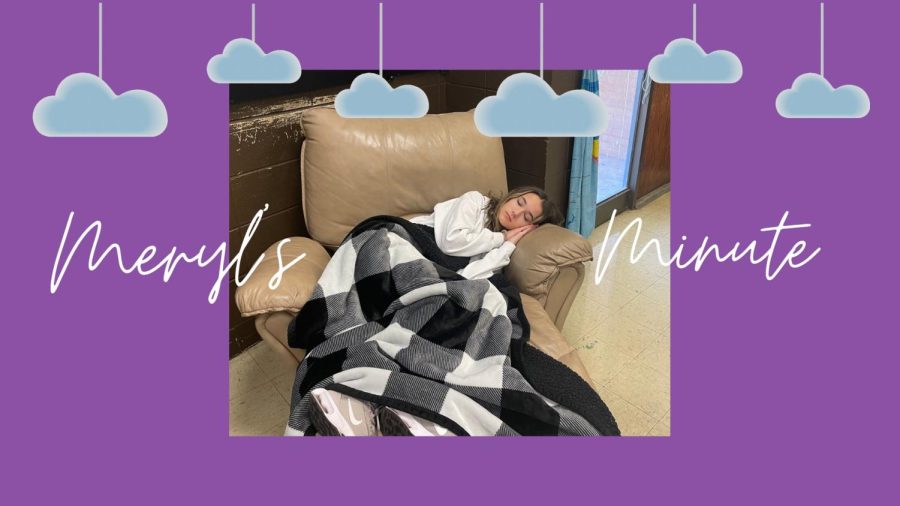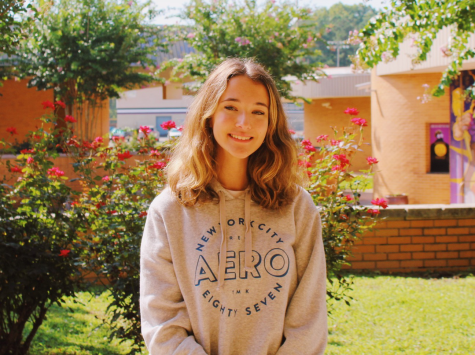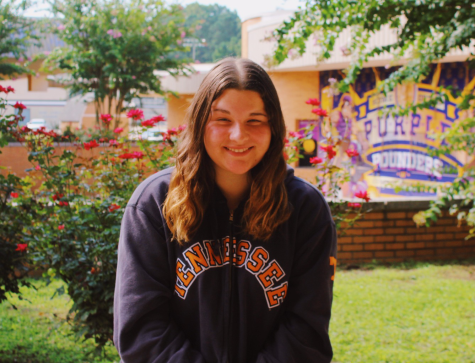Meryl’s Minute: Does the Early Bird Really Get the Worm?
MERYL’S MINUTE: DOES THE EARLY BIRD REALLY GET THE WORM?|
September 20, 2022
Do you ever just sit on the edge of your bed in the morning and stare into space, thinking about how much you don’t want to get up yet? Just me? Oh well.
However, I know for a fact I’m not the only one who isn’t enthusiastic about waking up at 6 o’clock in the morning to get ready for school. But putting my negative opinions aside, how does this schedule impact students’ mental health? Let’s take a look at the setbacks of starting the day a little too early in the AM.
The article, “Do Early School Start Times Put Students’ Health at Risk?…” uses multiple quotes by Judith Owens. She’s the director of the Center for Pediatric Sleep Disorders at Boston Children’s Hospital. “Teens typically can’t fall asleep until 11 p.m. and require 8 1/2 to 9 1/2 hours of rest. They’re biologically programmed to wake up at about 8 in the morning, the time at which many of them are already in school.”
Well, that makes sense. No wonder I can’t fall asleep until around 11 PM. This lady knows her stuff!
The majority of students I interviewed said they go to bed around midnight or later. One person in Mrs. Steven’s advisory period even said 3:30 in the morning. I could never function with such a little amount of sleep but hey, good for you I guess. Now, some might argue saying that the real problem is students staying up too late. I agree, it’s a big factor that plays into it and it has a lot of room for improvement. It’s good that there are plenty of ways to make going to sleep earlier a little less difficult. Carson, you should listen up because your sleep schedule is a train wreck.
Personally, I like to have the lights completely off and I’ll snuggle with one of my pets. My air purifier helps too because it makes for good white noise. However, everyone has different things that work for them. Here’s what other students and teachers do to get relaxed enough for bed:
“Whenever I have trouble falling asleep, I take melatonin.” -Kira Sims, Junior
“I have a cold mask that I sometimes like to wear. I have to have all of my fans on. I have to sleep with the TV on with no volume, and just a big blanket to keep me all warm, and my squashmallows.” -Ms. Casey Hale
“Usually listening to music helps me fall asleep.” -Tyson Dean, Senior
While these are solutions, they aren’t going to work for every single student. However, changing the starting time for schools will positively affect a wider range of students.
“School days should start around 8 or 9. It would make me have time to wake up and be energized for school instead of coming to school in a slumped mood. It would help me pay attention in class more, especially in first period.” -Sims, Junior
Furthermore, the article, “Later Start Times Better for Adolescent Development” provides details on an experiment conducted by “Berger and Associate Professor Rachel Widome [and] other researchers”.
In their study, they surveyed more than 9,000 students from eight high schools in five various districts across the United States. The school’s start times ranged from 7:35 AM -Central’s is even earlier- to 8:55 AM. The teenagers were asked about their sleep, specific health, academic, and behavioral issues.
“The study proved that adolescents attending schools with later start times reported greater sleep duration and later wake-up times, which were also associated with better mental health outcomes.”
For each extra hour of sleep recorded, there was a 28 percent decrease in the number of students who were depressed, unhappy, or sad. In addition, the majority of the kids who used alcohol, cigarettes, or other substances were reported to have an insufficient amount of sleep. (Later Start Times Better for Adolescent Development)
By many alumni all across America, high school is reminisced over as an enjoyable experience. Improving a high school or even a school district to be suitable for kids isn’t a one-and-done situation. There should never be a “good enough”. Times are changing so education needs to be evolving alongside it. As a society, we should always be open-minded to new concepts and be willing to make changes. Not just thinking about what time the first bell rings in the morning, but infinite opportunities expanding beyond it. Especially for the benefit of students’ mental health.






